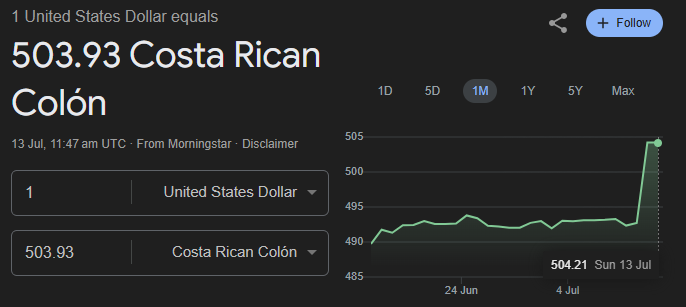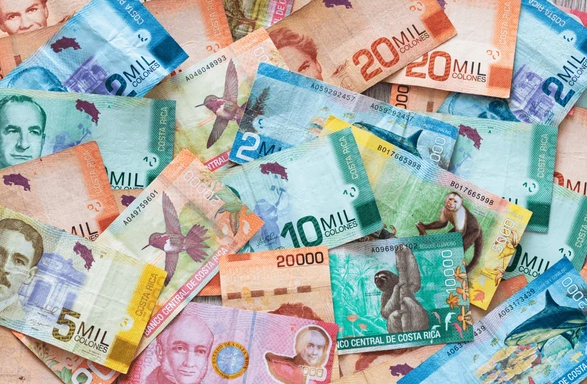
Ultima Markets App
Trade Anytime, Anywhere
Important Information
This website is managed by Ultima Markets’ international entities, and it’s important to emphasise that they are not subject to regulation by the FCA in the UK. Therefore, you must understand that you will not have the FCA’s protection when investing through this website – for example:
- You will not be guaranteed Negative Balance Protection
- You will not be protected by FCA’s leverage restrictions
- You will not have the right to settle disputes via the Financial Ombudsman Service (FOS)
- You will not be protected by Financial Services Compensation Scheme (FSCS)
- Any monies deposited will not be afforded the protection required under the FCA Client Assets Sourcebook. The level of protection for your funds will be determined by the regulations of the relevant local regulator.
Note: Ultima Markets is currently developing a dedicated website for UK clients and expects to onboard UK clients under FCA regulations in 2026.
If you would like to proceed and visit this website, you acknowledge and confirm the following:
- 1.The website is owned by Ultima Markets’ international entities and not by Ultima Markets UK Ltd, which is regulated by the FCA.
- 2.Ultima Markets Limited, or any of the Ultima Markets international entities, are neither based in the UK nor licensed by the FCA.
- 3.You are accessing the website at your own initiative and have not been solicited by Ultima Markets Limited in any way.
- 4.Investing through this website does not grant you the protections provided by the FCA.
- 5.Should you choose to invest through this website or with any of the international Ultima Markets entities, you will be subject to the rules and regulations of the relevant international regulatory authorities, not the FCA.
Ultima Markets wants to make it clear that we are duly licensed and authorised to offer the services and financial derivative products listed on our website. Individuals accessing this website and registering a trading account do so entirely of their own volition and without prior solicitation.
By confirming your decision to proceed with entering the website, you hereby affirm that this decision was solely initiated by you, and no solicitation has been made by any Ultima Markets entity.
I confirm my intention to proceed and enter this website Please direct me to the website operated by Ultima Markets , regulated by the FCA in the United KingdomWhat is the Currency of Costa Rica?
Costa Rica’s official currency is the Costa Rican Colón, abbreviated as CRC. It is issued and regulated by the Central Bank of Costa Rica (Banco Central de Costa Rica). The symbol for the colón is ₡, and its ISO code is CRC. If you’re asking what is the currency of Costa Rica?, the answer is simple: Costa Rican Colón.
The colón is used for all daily transactions in Costa Rica, although US dollars (USD) are widely accepted, especially in tourist-heavy areas. However, prices listed in local markets, public transportation, and government services are primarily in CRC.
How Much Is 1 Dollar Currency in Costa Rican Colón?

As of July 13, 2025, 1 US Dollar (USD) is equal to approximately ₡503.93 Costa Rican Colones (CRC). This rate has recently spiked from the ₡490 range, indicating a short-term movement likely driven by macroeconomic factors or policy shifts.
Exchange rates can fluctuate daily depending on the global USD outlook, domestic monetary policy in Costa Rica, and market sentiment. Always check live rates via trusted platforms like XE.com, OANDA, or your forex broker before making any conversions.

USD/CRC Understanding the Currency Pair
In forex markets, USD/CRC represents how many Costa Rican Colones are required to purchase 1 US Dollar. This exotic currency pair isn’t as liquid as major pairs like EUR/USD or USD/JPY, but it is actively monitored by traders interested in emerging markets.
Since Costa Rica is a relatively small economy and a heavy importer of goods, the USD/CRC exchange rate can be influenced by:
- US monetary policy
- Costa Rica’s inflation and interest rates
- Foreign investment inflows
- Tourism receipts
- Trade balance and fiscal policy
Key Factors That Affect USD/CRC in 2025
Understanding the USD/CRC exchange rate requires analyzing the macroeconomic, geopolitical, and technical elements that influence the strength of both the US Dollar (USD) and the Costa Rican Colón (CRC). In 2025, several key forces are shaping the movement of this currency pair.
US Federal Reserve Interest Rate Decisions
In 2025, the Federal Reserve’s monetary stance continues to influence the strength of the US Dollar. Higher US rates typically strengthen the dollar, making USD/CRC rise.
Costa Rica’s Domestic Economic Stability
Costa Rica’s central bank has maintained a managed float exchange regime, intervening when necessary. Inflation control and economic stability directly affect investor confidence and CRC strength.
Tourism and USD Inflows
As a major tourism destination, Costa Rica receives substantial USD inflows, especially during peak travel seasons. This seasonal demand can cause short-term CRC appreciation.
Commodity Prices and Import Costs
Costa Rica imports most of its fuel and industrial goods. Changes in global oil prices and import costs impact the trade deficit and pressure the CRC accordingly.
USD/CRC Trading Strategies
While USD/CRC is not as liquid as major currency pairs, it still offers unique opportunities for traders looking to diversify into emerging market currencies.
Fundamental Approach for Long-Term Positioning
Analyzing macroeconomic reports such as Costa Rica’s GDP growth, fiscal deficits, and foreign reserves helps in long-term trading decisions. Key US economic indicators like CPI, NFP, and interest rate outlook also provide context for USD movement.
Carry Trade Potential
Costa Rica has historically had higher interest rates than the US, attracting carry traders who borrow in USD and invest in CRC-denominated assets. This strategy depends on stable inflation and currency risk management.
Technical Analysis for Short-Term Swings
Due to low liquidity, USD/CRC can exhibit volatility. Technical traders use indicators like moving averages, RSI, and Fibonacci retracements to identify short-term price movements.
Most Popular Currency Pairs with Costa Rica (CRC)
| Currency Pair | Description |
| USD/CRC | Most popular and liquid. Used for tourism, trade, remittances, and forex trading. |
| EUR/CRC | Common due to Costa Rica’s exports and tourism from the Eurozone. |
| CRC/USD | Often used for local conversions and investment returns measured in USD. |
| CRC/EUR | Less common, but relevant in trade and Euro-based investment accounting. |
| CRC/GTQ | Regional trading pair with Guatemala, especially in cross-border trade. |
| CRC/PEN | Regional activity with Peru via trade and Latin American business flows. |
Conclusion
So, what is the currency of Costa Rica? It is the Costa Rican Colón (CRC), a relatively stable yet moderately volatile currency compared to the US Dollar. In 2025, traders monitor the USD/CRC pair for shifts caused by Fed policies, tourism flows, and Costa Rican monetary policy.
Understanding the economic drivers and technical setups of this exotic pair is essential for anyone involved in forex trading or international financial planning. If you’re looking to explore or trade USD/CRC, make sure to do so through a broker that offers transparency and educational support like Ultima Markets.
Disclaimer: This content is provided for informational purposes only and does not constitute, and should not be construed as, financial, investment, or other professional advice. No statement or opinion contained here in should be considered a recommendation by Ultima Markets or the author regarding any specific investment product, strategy, or transaction. Readers are advised not to rely solely on this material when making investment decisions and should seek independent advice where appropriate.












